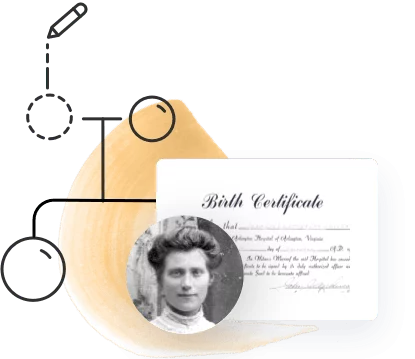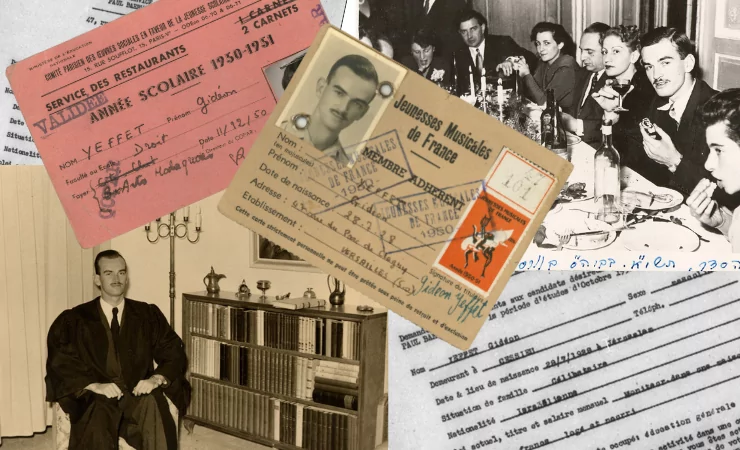
This story is a tribute to my dear father Gideon Japhet, who passed away in 2013. Of course, I knew him extremely well, but this genealogical discovery that I will share with you is about him and his early years. It just goes to show that with genealogy, there’s always something new to discover; you never know everything.
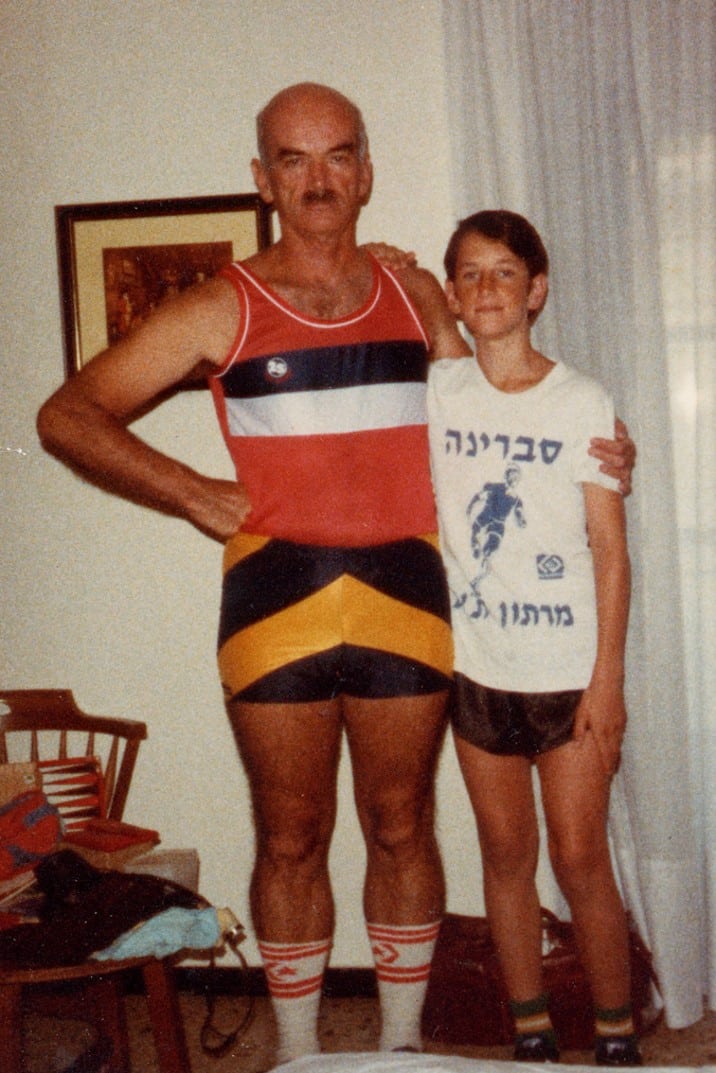
As a good son, I digitize all his documents and upload them to MyHeritage. I was recently scanning some documents I hadn’t handled before: student cards from his studies in Versailles, France, from 1950–1952.
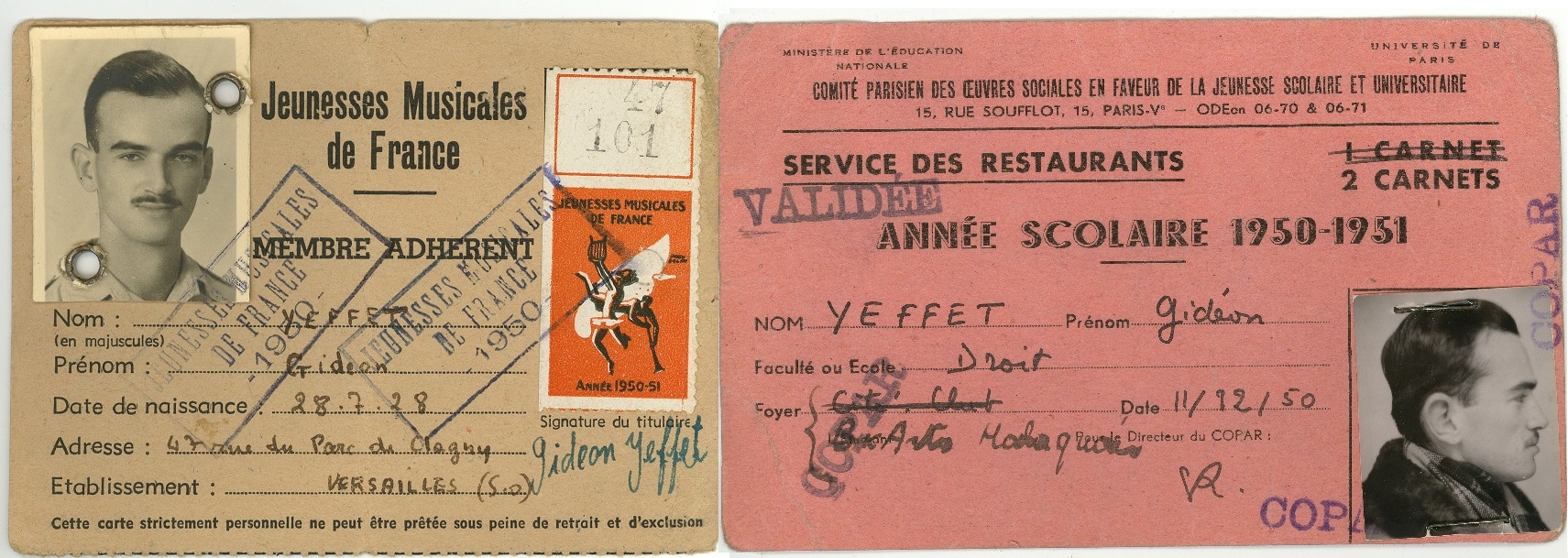
As a genealogist, I always pay attention to the small details. Here I discovered something interesting: my father, throughout his entire life, went by the name of Gideon Japhet, and spelled the last name Japhet like I do. However, in France, perhaps he thought that it wouldn’t be read properly, so he chose a different spelling: Yeffet, which is more consistent with how it’s pronounced in Hebrew. I found this spelling variant on those student cards, and it got me curious: maybe there was some information in France on somebody called Gideon Yeffet? I’d never looked for that before.
So I plugged the name Gideon Yeffet in quotes into Google. It told me that there weren’t many results, but there were two incredible results that made me shout for joy. These results came from France, from an archive I’d never heard of: the JDC, a Jewish humanitarian organization founded in 1914. They had digitized his entire student file, and it included a scan of his application to the school in Versailles from 1950, with his handwritten signature, his picture, and an essay he wrote on why he should be accepted.
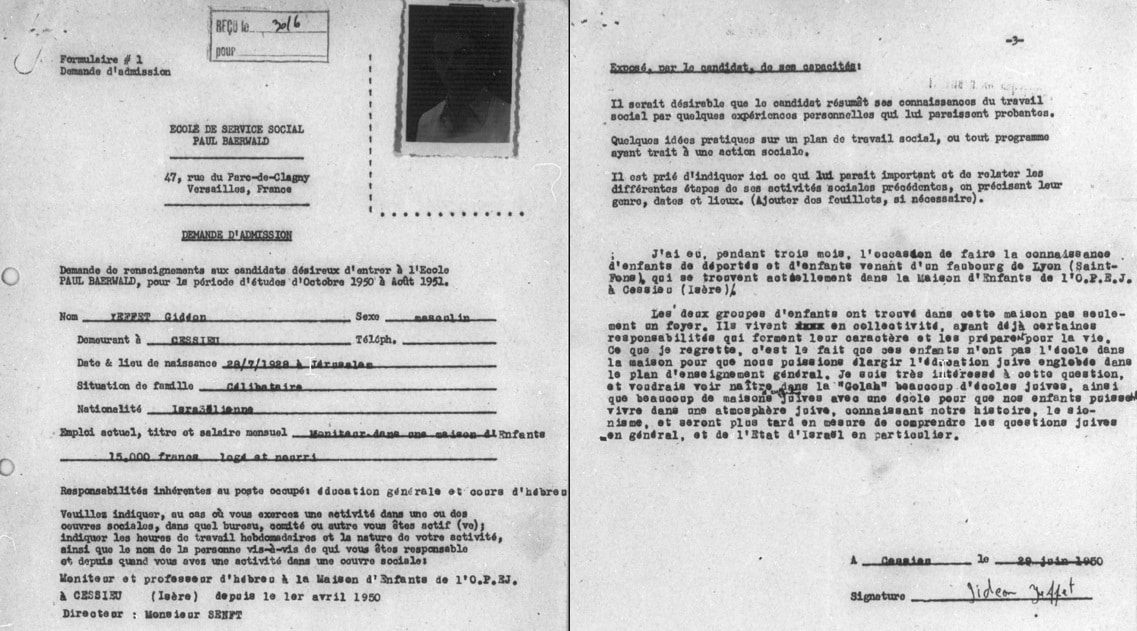
That was quite amazing, and I didn’t know all these details. I knew he went to France to study, but I didn’t know all the juicy parts!
Not only that: this archive had 48 more documents and letters about my father!
And there were some hair-raising surprises in there — some quite amazing things.
It turns out that my father went to France to study social work. Now why would he ever want to do that? Because his father, my grandfather Chaim Japhet, was one of the founders of Social Work in Israel together with Henrietta Szold, so my grandfather wanted his son to be just like him and kind of pushed him to go to the best school that was in France at the time and study social work. What I learned from all these documents and letters was that he actually applied in 1949 and was rejected. They said to him, “You don’t know French, you have no relevant background — you’re not accepted, we have many better candidates.”
To my shock, my father went, on his own initiative, and just showed up in France in 1950, with all his chutzpah. They said, “What are you doing here? Okay, since you’re already here, we’ll get you some job near Grenoble. You can teach Hebrew to Jewish children that were displaced after World War II, and you’ll learn French and get experience in social work.” After 3 months, he became fluent in French and had acquired some good experience working with children. So he reapplied to the school — and was admitted!
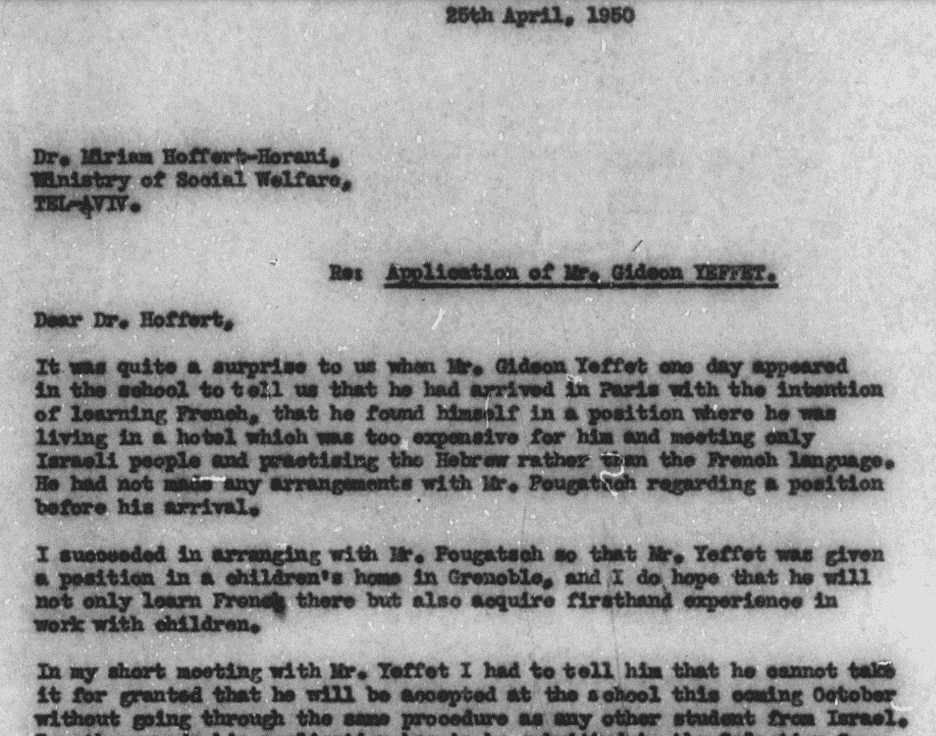
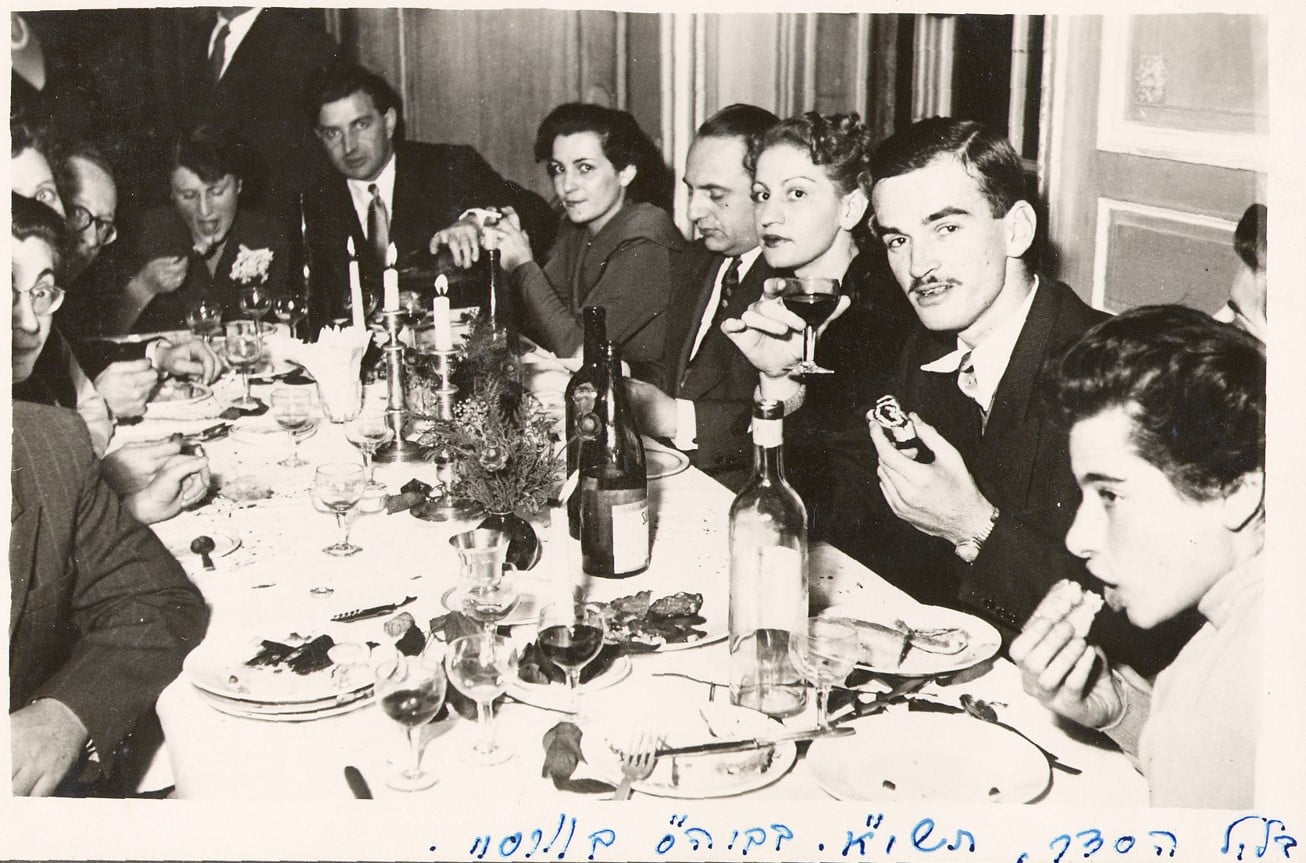
We never knew all of that — especially not the chutzpah part! But I was actually quite proud of him. If it were not for this turn of events I would not have been born, MyHeritage would not have existed, and you would not be reading this article right now.
The truth is, he didn’t like social work so much. After one year he quit and went to study law in Sorbonne. He became a lawyer, and the rest is history. But without this entrance into France, none of that would have happened.
So here are the takeaways:
- Every spelling variant you find can lead to new discoveries. Spelling is very challenging and it’s a blessing and a curse for genealogists. But if you find some variant that is relevant, attack it, because there could be records out there that you may never have known about.
- Historical records are like a river that flows to the ocean of the internet. All records want to be digitized and end up online, and they will; it’s a question of time. So if you search for something you don’t find it — wait a bit and try again.
- Google is your friend. You know MyHeritage is awesome and there are other very good websites, but they’re not going to have everything. Always remember that the wild internet is a very good place to search.
- Never stop searching: You never know what you’ll discover! Always stay curious.
This story was told as part of a presentation by Gilad Japhet at the RootsTech conference in 2023. Watch the full presentation in the video below:

